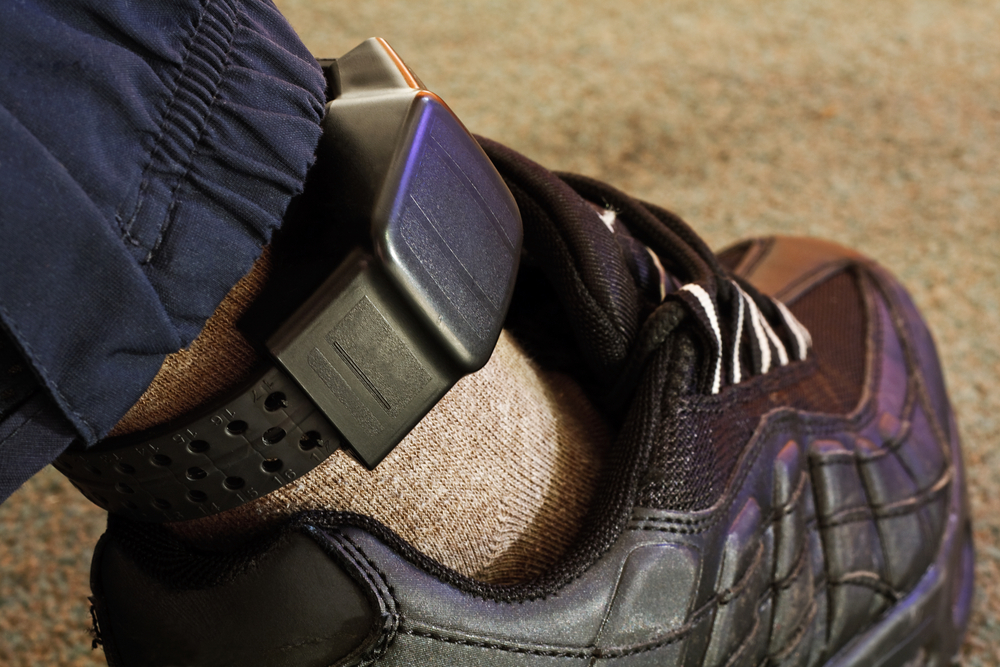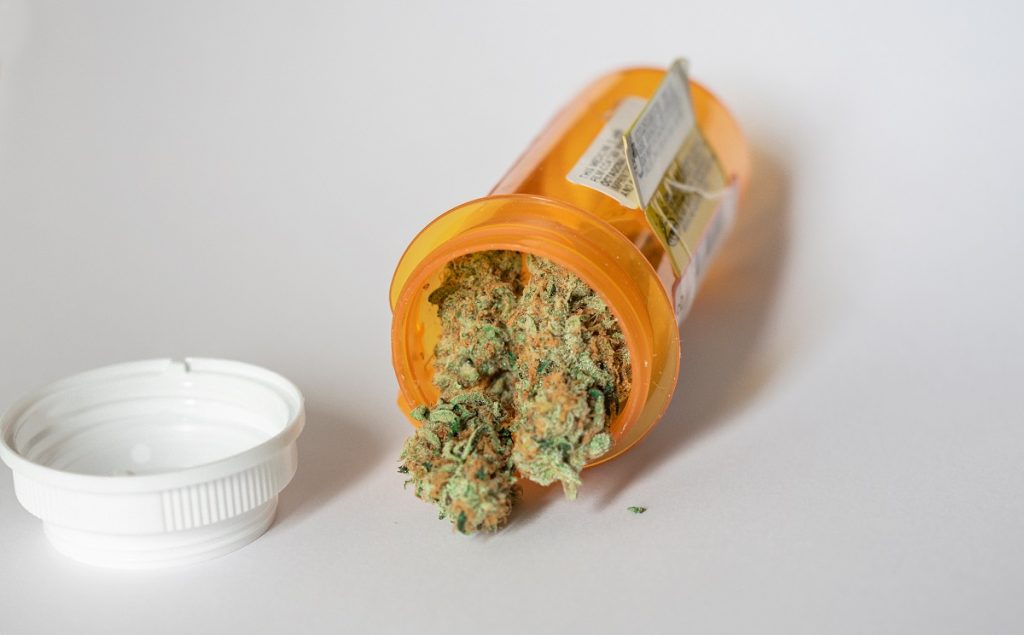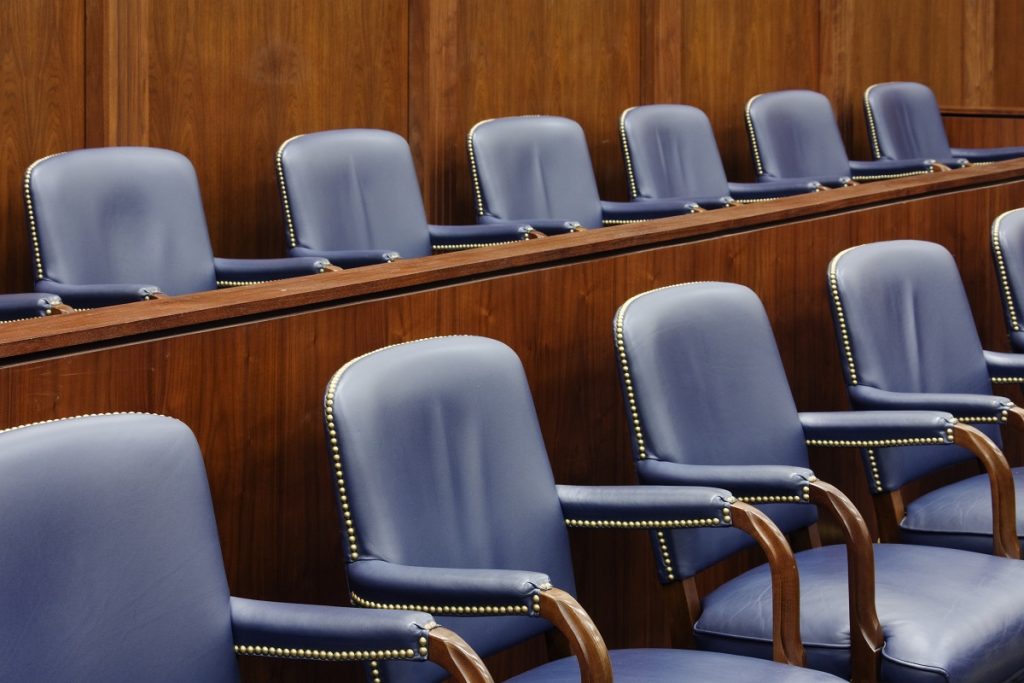
People can find themselves on the wrong side of the law, with a non-violent crime. In February of 2020, there were 2.3 million citizens incarcerated. About 80% of Americans will be placed on parole after serving a portion of their sentence. In 2018 alone, there were over 3 million Americans on probation, according to PrisonPolicy.org. The United States has the largest population of incarcerated citizens in the world.
Cannabis possession charges remain a common cause of incarceration in the United States. There is an average of 800,000 charges annually for personal possession of marijuana. Less than two ounces is considered ‘personal use’ in many states. The vast number of marijuana-related charges involve personal use. Either for recreation or for management of a health condition (in States where medical cannabis is or was not legalized).
What happens when an individual is arrested for a drug-related charge, and they are a licensed medical marijuana cardholder? One of the issues being debated right now is the constitutional rights of a patient who has been qualified to use medical cannabis on parole. Is it a violation of the patient’s rights to deny them medical cannabis while they are serving parole?
Many states say yes and support a drug-free parole term. Others feel that depriving parolees of medical cannabis for qualified health conditions may cause the person to re-offend or commit another crime. Or migrate to an illicit black market drug without the benefit of doctor supervision. We wanted to take a look at the varying stances that states are taking right now about this issue.
You were charged with a misdemeanor offense. Typically, misdemeanor charges do not require the citizen to serve time. However, a long probationary period and volunteer education may be part of the rehabilitation activities by court order. The average length of probationary time for a minor cannabis misdemeanor for possession is six months.
In the United States, there are more than 2,100 “Drug Courts” to process charges, and they are combined with rehabilitation and education programs. The model to reduce recidivism includes providing treatment programs, supervision, and monitoring, while allowing minor and first-time offenders to be released. Currently, less than 40% of first-time offenders who complete probation and the support programs re-offend.

During the course of serving probation, a monthly drug test is required. According to a recent survey of criminal defense lawyers, the average American can expect to spend $5,000 on defense costs and fines, for a first-time minor possession charge. A felony charge can cost as much as $10,000 or more for a possession or distribution charge.
If the individual serving probation fails to “screen clean” in the monthly urine analysis, they are remitted back to court. They can be incarcerated, or have additional time added to their probation, and may be required to pay another fine. To clear probation successfully, you have to report to your probation officer, comply with monthly drug screenings, and remain “drug-free” for the duration of your probationary sentence. Most states include alcohol on the list of drugs prohibited during probation. But is it ethical?
The requirements for probation extend beyond the recreational use of controlled substances. Americans who are serving a probationary term are not permitted to use pain medications (including opioids). And if they are a registered patient in the state medical marijuana program, they are also prohibited from using tinctures, smokable, or concentrates for the duration of their probationary term.
A percentage of individuals who have been charged with minor, non-violent personal use drug offenses are patients with medical conditions. Pew Research reported that 40% of drug charges were for marijuana possession (in non-legalized and legalized states). That is a rate of 4 out of every 10 drug offenses.
Some other interesting insights from the Pew Research report:
In non-legalized states, any amount of cannabis is illegal. Patients with moderate to severe health conditions in non-legalized states have been charged (but there is little to no data on the nature of the arrests and whether they were discharged). How do marijuana cardholders in legalized states get a misdemeanor drug charge? Frequently the offense is ‘accidental’ and a gap in education about what a patient can and cannot do, as a participant in a state legalized marijuana program.
As more states become legalized, education about legislation or essentially “what not to do” for patients is critical. Many charges are laid where an MMJ cardholder simply did not understand or was unaware of the cannabis control laws in their state.
Some examples of oversight that can lead to legal problems for MMJ cardholders include:
Mailing cannabis to themselves. States are not all reciprocal. Placing a controlled substance into the mail (even if you are mailing it yourself from another state) is a felony offense.
Growing cannabis plants at home where prohibited by state law. Or growing more plants than legally permitted by state medical marijuana laws.
Providing medical marijuana to a minor with a health condition if the minor is not a registered patient and the guardian is not a designated cardholder.
Gifting cannabis to another individual (with or without a health condition). Even if the other individual is a medical marijuana cardholder, it is illegal to share or gift cannabis to another individual. Some states like Alaska, California, Colorado, Maine, Nevada, and Oregon have laws that include legal marijuana gifting provisions.
Selling cannabis to another individual.
Taking cannabis into a state park (even when the state has legalized medical marijuana). All state parks fall under Federal jurisdiction, and cannabis remains prohibited at the State level.
Compounding cannabis concentrates at home, were not legally permitted. While it may be legal to purchase raw cannabis and concentrates, creating your own at home which may or may not exceed the legal THC limits in your jurisdiction, can get you into legal hot water. And that is exactly how registered patients in a medical marijuana program can easily find themselves with a legal problem.
Once they have been charged, and if it is a first-time possession or drug-related offense, they are likely to have a court-ordered probationary period. Where they are legally prohibited from using the medical cannabis that they need for their health conditions. Because state laws do not differentiate the use of medical cannabis (currently) during a probationary period from the use of other controlled substances.
Imagine that a patient made a mistake in understanding the medical marijuana program and legislation in their state. And they were charged with a misdemeanor or a felony offense. And now they are facing a six month to one year (or longer) probationary period where they are not permitted to use medical cannabis.
How will the patient cope with chronic pain symptoms? Muscle spasms? Crippling migraines. Mental health disorders can quickly become unmanageable for patients who use medical cannabis to mediate depression, anxiety, or post-traumatic stress disorder? The medicinal remedy that may make it possible for the individual to function daily, is barred for the duration of the drug probation.
We understand that these cases are a small percentage of unlawful cannabis use charges that occur in America annually, but they do happen. Individuals on parole are also not permitted to use NSAIDs or opioids (even when legally prescribed for health needs). Where does that leave an individual in the circumstance? Suffering debilitating health symptoms for six months or longer. With no relief, and with great disruption to their mental well being, health, employment, relationships, and financial security.
Currently in this country government regulations do not define prescription medications and medical cannabis as a health necessity for individuals serving parole.
Yes. That is what many social policies and health organizations believe. The disparity is a growing issue and the ACLU has a special focus and legal effort to challenge the ban on medical marijuana for Americans who are on probation. Citing the impact creates difficulty, increases the risk of reoffending, and new crimes related to unemployment. If restricted access to medical cannabis creates a situation where the patient cannot work.
The American Civil Liberties Union makes several good points. First, that Judges who determine the terms of probation for cannabis offenses are not medical experts. They do not have the training or experience to decide whether abstinence from medical cannabis would create an unfair disability to people serving probation.
The ACLU has started legal action in states like Pennsylvania, wherein Lebanon County, a battle erupted over one particular case. Melissa Gass was diagnosed with severe epilepsy and had an average of 13 seizures per day. She registered as a qualified patient for the PA medical marijuana program and found relief from her symptoms with therapeutic cannabis. Judge John Tylwalk provided a ruling that Lebanon County Probation services could not permit:
“…the active use of medical marijuana, regardless of whether the defendant has a medical marijuana card, while the individual is under supervision by the Lebanon County Probation Services Department.”
Source Web 2020: Fox43.com
When individuals are charged and ordered into a probationary period in Lebanon County Pennsylvania, one of the terms of the probation provides 30-days to discontinue use of controlled substances. That includes alcohol. And that also includes cannabis for Pennsylvania medical marijuana cardholders.

In the Supreme Court ruling of Gass vs. 52nd Judicial District, the ACLU supported Melissa Gass in her fight to retain access to medical cannabis as a registered patient, while she served probation. The timeline of the legal proceedings shares the reluctance of legislators to recognize medical cannabis as a necessity.
The ACLU represented three individuals on the same matter in the Pennsylvania Supreme Court. Melissa Gass (a patient with epilepsy), Andrew Koch (severe chronic pain conditions), and Ashley Bennett, diagnosed with PTSD and chronic abdominal pains.
The ruling in favor of ethical probationers and medical marijuana patients would allow medicinal use to continue. However, only for moderate to severe health conditions, that would impede quality of life and employability. Patients who would be disabled from activities of normal living would be considered for the exemption on a case-by-case basis.
While Lebanon County lawmakers lost in the Supreme Court, they added that it would be permitted only for patients who could demonstrate a clear need or serious medical condition to warrant use during probation. Local lawmakers cited that as marijuana was still federally prohibited, that the endorsement of the use of medical cannabis during probation was in itself, forcing the legal community to break the law by allowing it.
The case in Lebanon, Pennsylvania is precedent-setting. The American Civil Liberties Union (ACLU) will be pursuing other cases in different states, to defend the right for all patients to have therapeutic cannabis for wellness needs. There will be many more cases until states consider whether their own laws about medical marijuana during probation and parole should be re-evaluated.
No Information on MarijuanaDoctors.Com should be used to diagnose, treat, prevent or cure any disease or condition. You can view our Full Disclaimer here.